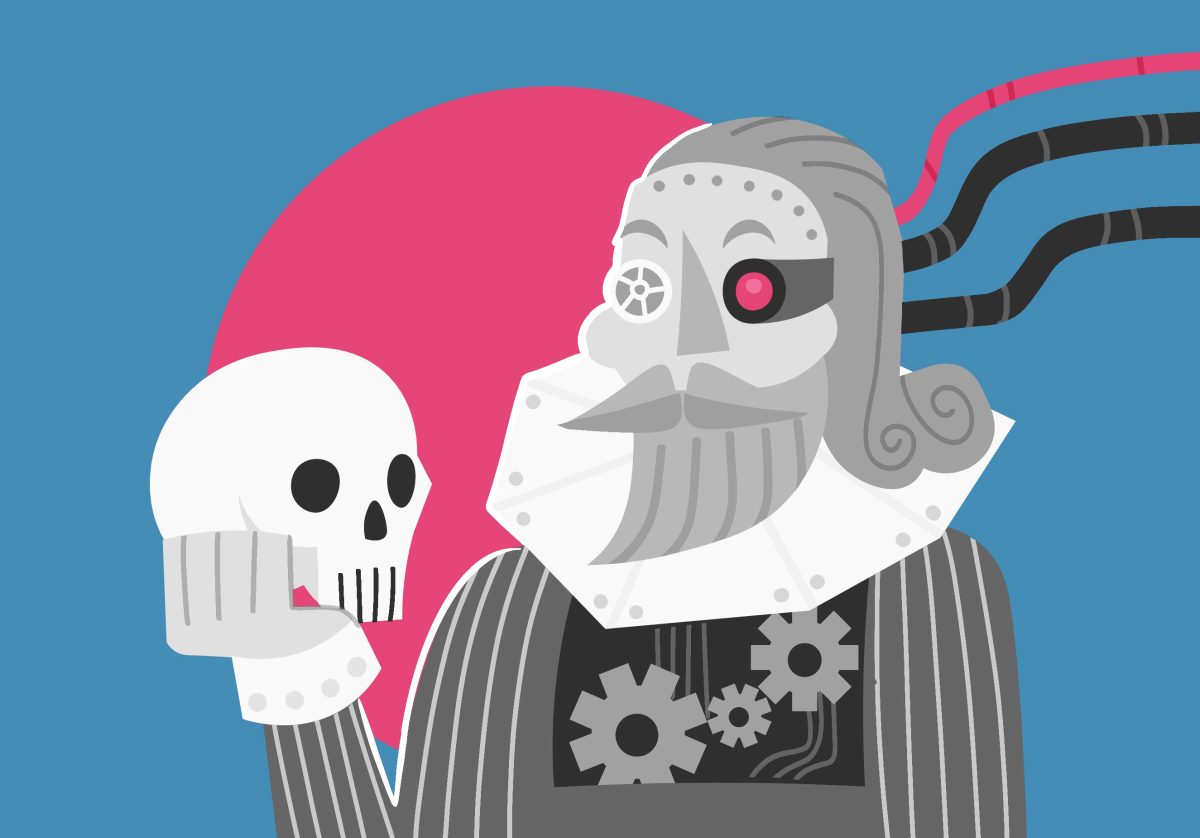Consider for a moment the breakneck speed at which researchers have been hurtling down the highway of medical advancements. In 1953, we first welcomed the Watson-Crick helical structure of DNA into our world. And now, less than 50 years later, we’ve already witnessed the decoding of our genetic makeup.
Dr. James Watson, who received a Nobel Prize for his work on the DNA structure, is still alive and well and intimately involved in directing the human genome project! Considering the territory covered, that would be analogous to Galileo headlining the search for life on Mars.
President Clinton has already called on fellow world superpower Britain and its Prime Minister Tony Blair to join him in dealing with the controversial issues surrounding genome research. But where does that leave the rest of the globe and more than 75 percent of its population? Choking and groveling in the medical dust clouds left behind these developed nations, along with any inkling of international medical ethics?
Research pioneers are on high-speed fast-forward, pushing back the barriers to future genetic disease treatments while millions continue to die from common illnesses that have been practically eradicated from the modern world centuries ago. How can we pump hundreds of millions of dollars into genomic research when children are dying from diarrhea and malnutrition? The gaping inequality between the haves and the have-nots has already exceeded any humane level of tolerance. We must shoulder our long-ignored responsibility to lessen the distance between the top and bottom rungs of the medical ladder.
While associations such as the World Health Organization, the Red Cross, and Doctors Without Borders do exist, the magnitude of their influence depends mainly upon those physicians and health care workers who voluntarily choose such an international focus. Because capitalistic gains aren’t to be found in helping the downtrodden nations of the world, the United States government hasn’t felt the burning desire to launch any widespread third-world medical crusade. And researchers offer little help as they idealistically forge ahead with their eyes on the prize and their heads in the clouds of science, granting little thought or feeling to the current status of suffering and disease in today’s world.
A genuine, concerted effort to improve the global standard of health must be spearheaded by at least one of the developed nations. And these efforts don’t even need to begin overseas. Disparities of health care within first-world countries aren’t even being addressed. In WHO’s latest assessment of the world’s health care systems, the United States ranked only 37 out of 191 nations, with the health care for impoverished Americans rivaling sub-Saharan African nations.
The industrialized countries of the world have a moral duty and obligation to the rest of the world and to those who live in poverty in the shadow of our mansions. Let’s share the fruits of further research with more than just the privileged populations.
Scientific advance must continue
But more tenuous concerns than the ethical and social issues of the human genome project disturb those who fear this age of seemingly unlimited knowledge. Some people fear that once we fully understand our DNA composition, human uniqueness, the “mystery of life,” and the spiritual component of humanity will be destroyed or eliminated.
To combat this sentimental, romantic mush, we must keep in mind that we are biologically guaranteed our individuality. Excepting identical twins, no one shares the exact same genetic coding, and absolutely no one exhibits his or her genome map with a cookie-cutter resemblance to anyone else.
Nor can the totality of human behavior be completely accounted for by merely understanding our chemical makeup. Genetics is not the be-all, end-all of human existence, and environmental influences cannot and should not be underestimated in the formation of who we are as human beings.
And don’t forget the basic limitation of all natural sciences: They explain how, but they cannot answer why. Science can construct mechanisms, plot pathways and draft the entire blueprint of a human body, but to actually approach the question of why we function as we do or why we were designed as such — researchers couldn’t answer that question with any more clarity than an innocent two-year-old could. Trust me, the mystery of life will still be alive and well thousands of years from now.
Similarly, spirituality is preserved by its very nature; it supersedes science and the physical realm. Faith in the “soul” or some otherworldly characteristic should not be shaken by a fuller, more detailed description of our physical selves. If anything, it should strengthen our belief in an omniscient being who masterminded the human body with its wondrous detail and design.
Tom Delbanco, chairman of general medicine at Harvard Medical school succinctly voiced the general ethical concern when he claimed, “Discovery is intoxicating. But the consequences of discovery are often complex, and instead of progress, it can lead to disaster.”
People question whether the age of genomic medicine will yield a super-box of plenty or a super-box of Pandora. As history has so often and so direly taught us, the greatest innovations of mankind, those capable of the most good and benefit of all, are also those capable of the most evil and the most destruction.
But those who fear future abuses of the human genome map could also afford to be more optimistic. Further genetic information might become information just as classified and personal as medical records or juvenile criminal records, reserved only for those institutions that would utilize such information only for the general betterment of the individual or of society.
Greater understanding of racial genetic differences could actually lead to less discrimination as current prejudices become genetically unfounded and improvable. And advancements in disease prevention could lead to improved wide-scale treatment of those underserved and underrepresented populations.
However genomic innovations might influence humanity’s growth, we must continue in our quest for knowledge. Obviously, we cannot slow scientific progress in fear of potential roadblocks in the future. Such reluctance to embrace new discoveries has hampered scientific and cultural advancement for centuries. Future generations that need the medical benefits reaped from this research should not have to suffer for our stubbornness.
Let’s not repeat history by fearing the truth and insisting the earth lies at the center of the universe. As Isaac Asimov said, “If knowledge can create problems, it is not through ignorance that we can solve them.”
Samantha Pace’s column appears on Fridays. She welcomes comments at [email protected].










